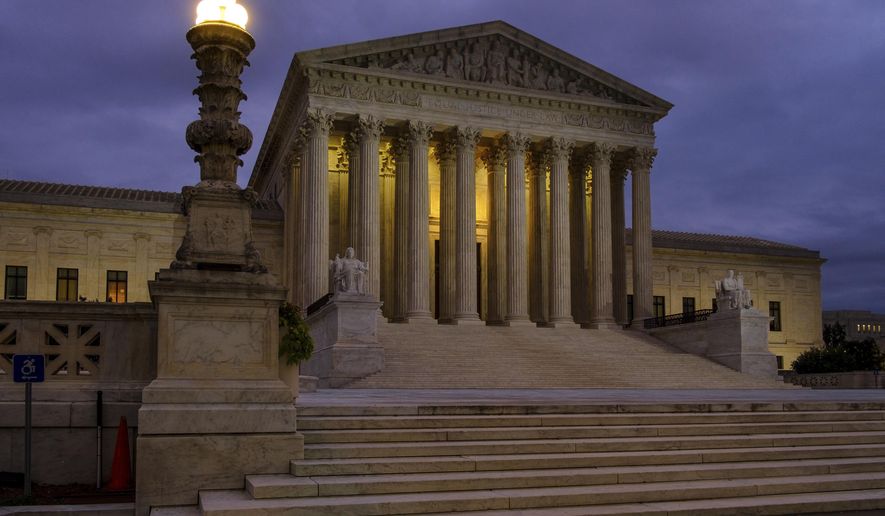The Supreme Court said Friday that it will take a case involving an illegal immigrant who claims he didn’t know his status had lapsed when he went to shoot a gun at a range, thus violating a law against illegal immigrants possessing weaponry.
Hamid Rehaif, a citizen of the United Arab Emirates, was studying on a student visa at the Florida Institute of Technology when the school sent emails saying he had been “academically dismissed” and his visa would be ending.
Ten months later, he was found in possession of ammunition and admitted he had been to a firing range, where he rented weapons to shoot. That put him in violation of a federal ban on illegal immigrants possessing guns or ammunition.
He said he wanted to argue that he never received the emails so he didn’t know he was in the country illegally, and thus didn’t “knowingly” violate the law, but the lower courts made that point moot.
Mr. Rehaif is asking the justices to overturn his conviction and give him a chance to argue that he wasn’t aware.
“It is lawful to go to a shooting range and rent a gun to shoot there, and to purchase ammunition. The only thing that makes such conduct illegal, under [the law], is if the person happens to be illegally or unlawfully in the United States at the time,” his attorneys argued.
At issue is whether the law requires both knowledge of being in possession of weaponry and knowledge of being in the country illegally.
The lower courts ruled that the law requires only that someone knowingly possesses the firearm — regardless of awareness of illegal status.
The Justice Department said every court that has ruled on the matter has found that the “knowingly” standard applies only to the firearms possession.
But Mr. Rehaif points to writings by then-Judge Neil M. Gorsuch — now on the Supreme Court — who said the “knowingly” standard must apply both to the firearms possession and their prohibited status.
Solicitor General Noel Francisco, in his brief to the court, said Mr. Rehaif’s challenge is a poor test of the law.
He said the man “admitted to an FBI agent that he knew that his student visa — his sole basis for lawful presence in the country — was no longer valid at the time he possessed the firearms and ammunition.”
Mr. Rehaif, in his attorneys’ briefs, said he never responded to the emails informing him of his status and the FBI interview wasn’t recorded, so he could argue that he wasn’t aware his status had lapsed.
The case is Rehaif v. U.S. No argument date has been set.
• Stephen Dinan can be reached at sdinan@washingtontimes.com.




Please read our comment policy before commenting.